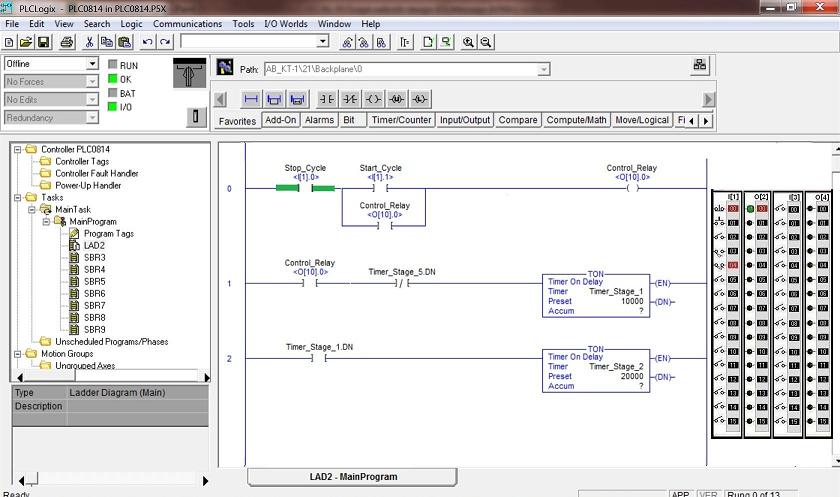

Because SINT’s hold signed values, a SINT tag can hold values from -128 to +127. SINT Bits of DataĪ tag of data type Single Integer, or SINT, stores 8 bits of information. We’ll cover memory economization further down the page. You should consider doing so, especially if you’re writing logic that will be reused over multiple devices or applications. But there are ways to economize your memory usage if you’re going to use many Boolean tags in the same chunk of logic. I’m not saying that you should never use BOOL’s, and in fact, you’ll surely use many, many BOOL’s. As a result, even though it only requires one bit to represent a Boolean value, a stand-alone tag that is defined as data type BOOL will still take up 32 bits in memory. Programmable Logic Controllers that are compatible with RSLogix 5000 use 32-bit memory allocation. The New_Boolean tag would be an example of a “stand-alone tag” of type BOOL. Then, on the very bottom row, I type New_Boolean for Name and BOOL for Data Type. What does “stand-alone tag” mean?īy “stand-alone tag”, I mean a tag that is not part of a UDT or other structure.įor example: I go to Controller Tags and click the Edit Tags tab. Booleans are perhaps the most-used data type, representing not only real world inputs and outputs ( proximity sensor made or not made, valve output on or not on, etc.), but also various status conditions in the PLC (process 1 complete, next unit data available, etc.). Booleans are useful for storing states that are either true or false, light or dark, on or off, etc. Atomic Data Types BOOL Bits of DataĪ Boolean tag can hold one of two possible values: a 1 or a 0. Let’s start by looking at RSLogix 5000’s simplest atomic data type, a BOOL. Further down the page, we’ll go past the basics by looking at memory utilization and programming practices. RSLogix 5000 supports the following IEC 61131-3 atomic data types:īelow, I’ll go over each of these data types. These data types are inherent to RSLogix 5000 and will be utilized by many of its native instructions. Atomic data types are the predefined data types that form the backbone of RSLogix 5000’s memory structures.

In this article, we’ll discuss atomic data types in Rockwell Automation’s RSLogix 5000.


 0 kommentar(er)
0 kommentar(er)
